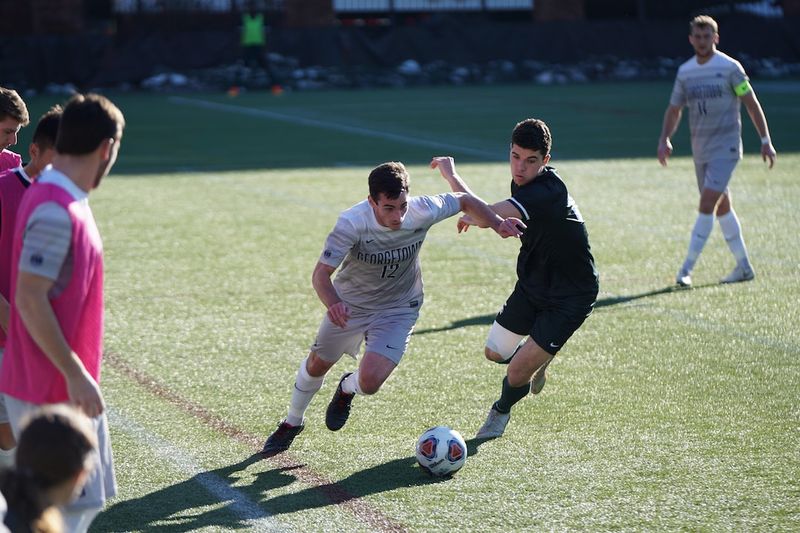Devastated Tuohys Ready to End Conservatorship for Michael Oher
The Background
In a shocking turn of events, a prominent Memphis couple, Sean and Leigh Anne Tuohy, are ready to end the conservatorship they have had over former NFL player Michael Oher, a role that Oher is currently challenging in court. The Tuohys, who have a longstanding relationship with Oher, became his conservators almost two decades ago, rather than his adoptive parents, according to papers Oher recently filed in a Tennessee probate court.
Oher, now 37 years old, is seeking a full accounting of assets, as he believes his life story, which was the basis for the Oscar-nominated movie “The Blind Side,” has generated millions of dollars. He claims that he did not receive any financial compensation from the film and accuses the Tuohys of falsely representing themselves as his adoptive parents.
Oher’s Claims and the Tuohys‘ Defense
Oher alleges that he discovered in February 2023 that the conservatorship was not the arrangement he believed it was and that it provided him with no familial relationship to the Tuohys. He further asserts that the Tuohys profited from his trust in them.
However, the Tuohys‘ attorneys point out that Oher was well aware that he had not been legally adopted. They note that Oher himself mentioned the Tuohys being conservators for him in his book “I Beat The Odds: From Homeless, To The Blind Side,” published in 2011. The attorneys add that Oher and the Tuohys have been estranged for approximately a decade.
According to the Tuohys, Oher has become increasingly vocal and threatening over the past decade or so, which has been devastating for their family. They dismiss his allegations as a ridiculous shakedown attempt and insist that a court of law is not the place to play such games.
The Complex Adoption Process
Oher’s claims focus on the fact that the Tuohys had him sign paperwork almost immediately upon his moving in, as part of what he believed was the adoption process. He claims that he was misled into thinking it would be called a conservatorship because he had already turned 18, but that the intention was for him to be legally adopted.
The Tuohys‘ attorneys explain that the couple did not simply adopt Oher because the conservatorship was the quickest way to address concerns from the NCAA, who questioned whether the Tuohys were simply steering a talented athlete to their alma mater in Mississippi, where Oher eventually attended college.
Oher’s Demands and the Tuohys‘ Response
Oher is requesting that the Tuohys be sanctioned and required by the probate court to pay damages. He wants to be paid what he believes is his due, along with interest. He also alleges that the Tuohys threatened negative media coverage unless they paid him $15 million, a claim the Tuohys vehemently deny.
The Tuohys‘ attorneys state that agents negotiated a small advance for the couple from the production company of “The Blind Side,” based on a book written by Sean Tuohy’s friend Michael Lewis. According to the Tuohys, this included “a tiny percentage of net profits” divided equally among a group that included Oher. They assert that each party received $100,000 and that they paid taxes on Oher’s portion.
The attorneys provide profit participation checks and studio accounting statements to support their assertions and emphasize that the Tuohys do not need Oher’s money, as Mr. Tuohy sold his company for $220 million.
The Conservatorship and Oher’s Career
The conservatorship paperwork was filed months after Oher turned 18 in May 2004. Oher accuses the Tuohys of failing to take legal action to assume custody from the Tennessee Department of Human Services while he was still a minor. However, he admits that he was instructed to call the Tuohys “Mom” and “Dad.”
Oher argues that the conservatorship was approved despite the fact that he was already over 18 years old and had no diagnosed physical or psychological disabilities. In Tennessee, a conservatorship is typically implemented when a person is unable to make decisions for themselves due to a medical condition or disability.
Oher enjoyed a successful career in the NFL, beginning when he was selected as the 23rd overall pick in the 2009 draft by the Baltimore Ravens. He played for multiple teams, even winning a Super Bowl with the Ravens, before retiring in 2016 due to injury.
An Ethical Dilemma: The Intersection of Family, Love, and Money
Familial and Legal Complexities
The case of Michael Oher and the Tuohys exposes the ethical complexities that can arise when family ties are intertwined with legal arrangements and financial interests. Oher’s claims against the Tuohys raise important questions about the nature of familial relationships, trust, and the responsibilities that come with assuming a role as conservators or adoptive parents.
The Tuohys argue that their primary motive in seeking the conservatorship was to provide support and guidance to Oher while addressing concerns from the NCAA. They assert that their actions were guided by a genuine desire to help Oher, who they had developed a close relationship with. However, Oher’s claims challenge the legal and moral boundaries of their relationship.
The Role of the Media
The movie “The Blind Side,” which depicted Oher’s journey from homelessness to NFL stardom, further complicates the narrative. Oher’s claim that he received no financial benefit from the film raises questions about the exploitation of personal stories for commercial gain. It also highlights the challenges faced by individuals whose lives become entwined with media narratives.
The Tuohys, portrayed by Sandra Bullock and Tim McGraw in the film, claim that Oher did receive financial compensation, although Oher disputes this. The conflicting accounts demonstrate the difficulties in determining the truth and the ways in which personal narratives can be shaped and manipulated by various parties.
The Role of Money and Trust
The question of financial compensation and Oher’s allegations that the Tuohys profited from their relationship illuminates the complex dynamics of trust and money. Oher argues that he placed his trust in the Tuohys, believing they were his adoptive parents, only to discover later that their motives may have been financial rather than familial.
While the Tuohys assert that they did not need Oher’s money and that they acted in his best interest, the allegations put the financial aspect of their relationship under scrutiny. The pursuit of financial gain can blur the boundaries of familial relationships and raise questions about the ethics of financial transactions within a family context.
Editorial: Balancing Legal Responsibility and Emotional Ethics
A Need for Legal Clarity
The case of Michael Oher and the Tuohys exposes the need for greater legal clarity in the realm of conservatorships and adoptions. It is essential that legal processes relating to the care and support of individuals are transparent and adequately protect the interests and rights of those involved.
The confusion surrounding the conservatorship documents and Oher’s understanding of the arrangement shines a light on potential pitfalls within the existing legal framework. Clarity in legal paperwork is crucial to ensuring that individuals fully comprehend the implications of their actions, especially when it comes to complex family relationships.
Reevaluating Relationships and Expectations
Beyond the legal sphere, this case prompts a broader discussion about the nature of relationships and familial responsibilities. While the Tuohys may argue that their intentions were genuine and supportive, it is vital to critically examine the expectations and obligations that arise when individuals assume roles such as conservators or adoptive parents.
Adoptive parents and conservators should prioritize transparency, communication, and mutual understanding. Open conversations about the intentions and expectations underlying these relationships can help prevent confusion and potential harm to all parties involved.
Ethical Considerations in Media Portrayals
The case of Michael Oher also raises ethical questions concerning media portrayals of personal stories. It is essential that we critically assess the ways in which narratives are constructed and the potential consequences for those directly involved.
Media platforms have a responsibility to ensure that personal stories are told accurately and responsibly. This includes providing fair compensation to individuals whose stories are adapted for movies or television shows. Financial transparency and equitable distribution of profits are crucial to avoiding disputes like the one between Oher and the Tuohys.
Advice: Navigating Complex Family Dynamics
Transparency and Communication
When navigating complex family dynamics involving legal arrangements such as conservatorships or adoptions, transparency and open communication are key. All parties involved should have a clear understanding of the legal and emotional aspects of the relationship.
It is essential to maintain ongoing conversations about expectations, responsibilities, and potential financial implications. Clear and honest communication can help prevent misunderstandings and ensure that all parties involved are fully aware of their rights and obligations.
Seek Legal Assistance
In situations where legal arrangements, such as conservatorships or adoptions, are involved, seeking legal advice is vital. Legal professionals can provide guidance, clarify any ambiguities, and ensure that the interests of all parties are protected.
Legal assistance can also help in understanding the rights and responsibilities associated with conservatorships and adoptions. This can prevent misunderstandings and potential legal conflicts in the future.
Emphasize Empathy and Compassion
Throughout the complex discussions and legal processes, it is crucial to prioritize empathy and compassion. Recognize that the emotions and experiences of all parties involved are valid and deserve respect.
Empathy and compassion can help foster understanding and facilitate meaningful conversations about the expectations, responsibilities, and potential financial implications associated with legal arrangements. This approach can contribute to more constructive resolutions and stronger, more healthy familial relationships.
Reflection on Money and Relationships
The case of Michael Oher and the Tuohys highlights the ethical considerations surrounding money within family relationships. It is essential to reflect on the role of money and its potential impact on relationships and trust.
Open discussions about financial expectations, transparency concerning financial arrangements, and equitable distribution of resources can help foster healthy family dynamics. By placing importance on ethical considerations and recognizing the complexity of financial transactions within families, individuals can navigate these challenges more thoughtfully and responsibly.
In conclusion, the case of Michael Oher and the Tuohys serves as a reminder of the intricate intertwining of legal, emotional, and financial aspects within complex familial relationships. Through clear communication, legal clarity, and a focus on empathy and compassion, it is possible to navigate such complexities and foster healthier relationships.

<< photo by Sir. Simo >>
The image is for illustrative purposes only and does not depict the actual situation.
You might want to read !
- “The Tuohy Family’s Rebuttal: Unveiling the Truth Behind Michael Oher’s Allegations”
- Unlocking New Possibilities: Exploring the Potential of Plasma in Atomic Layer Etching
- Tech Guru Linus Sebastian: Why Linus Tech Tips is Taking a Well-Deserved Break
- The Truth Behind Michael Oher’s Allegations: A Closer Look at the Tuohy Family’s Response
- The Blind Side: Unraveling the Controversies Surrounding Michael Oher’s Claims
- “The Extravagance of Brad Pitt and Jennifer Aniston’s Lavish Lifestyle: A Wall of Caviar and Beyond”
- Bruce Springsteen’s Health Crisis: Postponement of Philadelphia Shows Sends Shockwaves
- Snapchat AI: Unintended Consequences of Autonomous Posting




